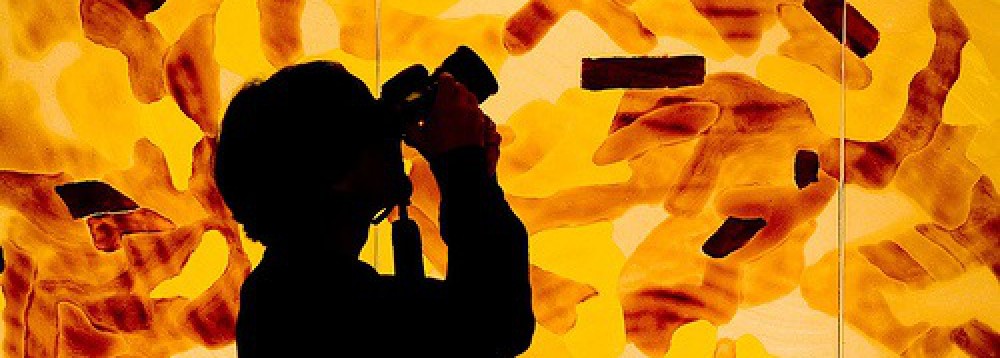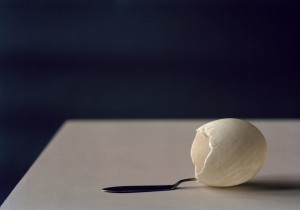tex·ture /ˈteksCHər/ noun
|
In class we discussed the wet-plate collodion process of mid-nineteenth century photography. The photo historian Helmut Gernsheim once referred to this collodion era as the “culinary period” of photography (Gernsheim, 1969, 258). Aside from the sticky collodion that photographers like Roger Fenton and Mathew Brady applied to their glass plates, photographers tried all sorts of ingredients to keep the collodion moist for longer periods of time, including treacle, malt, raspberry juice, milk, licorice juice, chestnut juice, beer, tea, and coffee.
For this week, I ask you to think about the idea of texture in food, and how does one capture texture in a photograph. The key to communicating texture in photography is to pay careful attention to detail. In this week’s homework, you get to practice taking a photograph, re-sizing it, and uploading it to our class website. For example, look at the photograph by contemporary photographer Olivier Richon and note how it gives you a sense of the texture of an egg, an object that we’ll be thinking about a lot this semester. Take a food-related photo (something you made or saw), resize it (follow the directions on how to resize you photo to smaller than 600 to 700 pixels here) and upload your photo to the class site with a short passage describing the texture of your food item.
In class, we also talked about the albumen process that makes use of egg whites. What happened to all those egg yolks? You can click here to see a recipe for a 19th-century photographer’s cheesecake.
PLEASE SUBMIT YOUR POSTS BY MONDAY OCTOBER 19, 2015.





I think it is fascinating that photography and food (albumen) have been long associated, and there is even a career in food photography- food stylist! How very creative that the albumen process was developed and from it a recipe to use up the yolks. Why is it called a cheesecake if there is no cheese in the recipe?
I often think meringue was invented to use up all the egg whites that are left over from recipes that call for egg yolks only.
Good question. I’m not sure why it’s called a cheesecake without the cheese. But this I think its derived from the British. Although there are cheesecakes made out of curds, the English have many 18th- through 19th-century recipes of cheesecakes that are really custards made out of cream and eggs. It still looks delicious!
Food texture is one of the most important things when it comes to a persons preference. I can not count the amount of times i ave been eating with someone and they say that they do not like the food because of the texture or how it feels in their mouth. This does not effect the taste scientifically but some how in there mind it ruins the dish just because of the sensation that it give their mouth. Im still having problems creating my own thread but the photo would have used was one of a shrimp cake. It is in the shape of a square and has a smooth texture on the outside but when it is broken open you see that its rough on the inside. With a piece of parsley on top it really contrasts from the smooth outside because of the rough edges of the green.
When it comes to food there are several details we pay attention to. From the color of the food, to the smell, and of course texture. We all expect satisfaction from out tasty meals and snacks. You expect your bag of Lays chips to taste exactly as they did a few months ago when you ate them before. Its interesting to know that there are many people out there that judge their food based on texture. Some people cannot stand the texture of mash potato or maybe the texture of fish. They will tell you that it feels funny to them in their mouths and they refuse to eat it. I agree that certain things feel weird to taste but to me it isn’t so much about texture but more about flavor and taste. My picture is that of an apple pie we made in my Pastry class. The pie looks real delicious and even appears warm with a nice flaky crust. Top it off with some vanilla ice cream and boom, amazing. The difference of textures between the apples and the crust is interesting because one is mushy and soft will the other is hard and maybe even crunchy. To be honest the texture of the apples seem a little off to me. Maybe because i knew they were canned apples. I’ve had homemade apples and it was delicious. The apples were soft, nothing like canned apples. Also you can see the gel like filling of the pie, the filling was perfect. Just enough cinnamon, just enough sugar. But those canned apples, kind of ruined it for me lol .